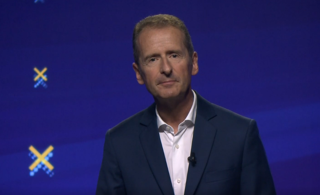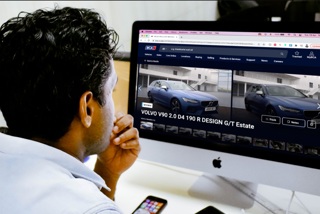The Bank of England’s decision to raise interest rates to 0.75% have been criticised for placing “more pressure on household finances” - and will impact the car retail sector too.
The Bank made its third rise in four months – from 0.5% to 0.75% – in a bid to calm the rising cost of living as soaring energy bills combined with rising food costs and concerns about the impact of the war in Ukraine.
Echoing last week’s warning from the Finance and Leasing Association (FLA), the Bank warned inflation may reach 8% or more in the coming months.
In the year to January prices have risen by 5.5% in the UK – the fastest rate for 30 years – with the Office for National Statistics (ONS) noting that energy and fuel prices had contributed to the rising cost of living.
Members of the Bank of England’s Monetary Policy Committee (MPC) voted eight-to-one in favour of an increase in interest rates this week, warning that inflation could hit double-digits later in the year if energy prices push up the energy price cap.
Unite the union general secretary Sharon Graham voiced concerns about the move’s impact on household finances.
Graham said the rise came at a time when "millions of working people are facing the worst cost-of-living crisis for generations", adding: "This rise will put even more pressure on household finances as inflation and energy bills continue to skyrocket."
Reflecting on the impact of interest rate rises on car retail, Richard Bartlett-Rawlings, RSM partner and head of automotive manufacturing, told AM: "Vehicle prices have already been moving northwards to reflect both supply issues and increases in the raw material costs associated with the manufacture of vehicles.
"Finance houses have also been increasing interest rates as well, with new deals attracting higher APR due to the expectations of the market moving forwards.
"Where new cars have been ordered but the finance not locked in, the buyer is potentially exposed to further increases in APR, which may be driven by the expectation of further intervention by the Bank of England to offset inflation."
Bartlett-Rawlings added: "The key issue as always will be the fact that consumer spending will start to fall as people start to fear the effects of both tax increases and inflation which in real terms erodes their real wage levels.
"I think we will start to see people reducing their spending to save for a rainy day, rather than spending on large purchases or committing to significant monthly expenditure.
"As such I foresee the used car market remaining strong, as people hold onto vehicles and new cars remain in short supply due to component issues.
"Due to the shortages of new cars and the position of the used car market I don’t think new car sales will be significantly impacted, but they are already at historically low rates due to the widely publicised component issues around microchips. This will be further exacerbated by the conflict in Ukraine which is a key area of supply for vehicle components and may result in further reductions in production."
A news insight feature in the latest digital edition of AM magazine, which was published online today, focussed on the imapct of the Ukraine war, but noted the strength of consumer demand for cars amid the current supply shortages.
Packed order books are likely to insulate retailers from an immediate downturn in consumer confidence.
However, rising overheads are likely to bite hard.
Journey Energy Solutions chief executive, Darren Riva, told AM that the only way car retailers could avoid rising energy costs in a potential crisis resulting from the war in Ukraine is to go “off grid”.
The Bank of England said yesterday that Russia’s invasion of Ukraine had already triggered rising prices but was also “likely to exacerbate global supply chain disruptions, and has increased the uncertainty around the economic outlook significantly”.
Earlier this week Volkswagen Group chief executive Herbert Deiss warned that the Ukraine conflict had put its existing outlook “into question”.
And one franchised car retailer told AM that it had left his hopes of an automotive supply recovery “off the cards”.


















Login to comment
Comments
No comments have been made yet.